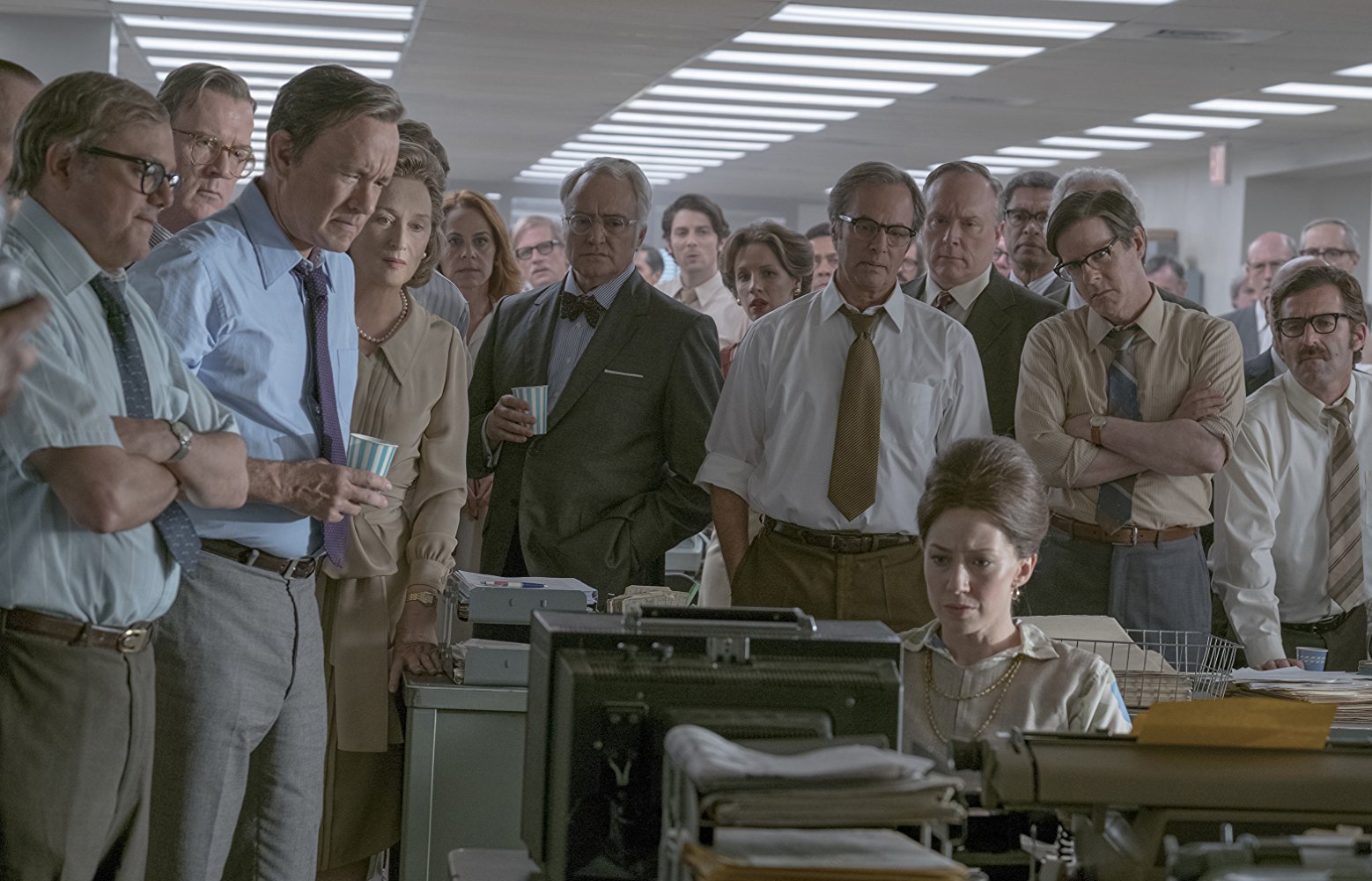In terms of setting, The Post portrays the past, specifically a prosperous age in which newsrooms were fully staffed, typewriters were clicking, presses were humming, and front-page stories were required daily reading.
Yet thematically, Steven Spielberg’s riveting new drama feels practically ripped from today’s headlines, by chronicling accusations of government corruption and cover-ups, a defiant White House that bemoans the free press, and the intersection between journalistic integrity and corporate interests.
The film goes behind the scenes of the first of two major political scoops for The Washington Post during the final years of the Nixon administration — the second being the investigation of the Watergate scandal.
Specifically, it takes place in 1971, after disgruntled former state department contractor Daniel Ellsberg (Matthew Rhys) begins leaking the classified Pentagon Papers to major news outlets. The document details a secret non-partisan defense department study of American military involvement in Vietnam over the past two decades, with results that would add fuel to public antiwar sentiment.
Ben Bradlee (Tom Hanks) is The Post’s executive editor whose team of reporters immediately jumps on the story, especially in light of a government lawsuit that suppressed the effort of the competing New York Times.
The main obstacle for Bradlee comes from within. The paper’s publisher, Katharine Graham (Meryl Streep) must approve the story, and she’s conflicted because she doesn’t want to tarnish the reputations of friends in the Washington social scene or jeopardize the windfall from an impending public stock offering that could rescue the financially struggling company.
Indeed, the screenplay skillfully digs beneath the headlines while juggling multiple narrative angles. With the urgency of an approaching deadline, Spielberg ratchets up the suspense while offering an evocative glimpse into its setting, both in appearance and texture.
The brisk film infuses a familiar tale with insight and flair, even if it’s destined for comparisons to All the President’s Men, which benefited from more compelling true-life source material in the aftermath of this story.
However, Hanks and Streep are each superb, with her internalized contemplation providing an ideal counterweight to his charismatic impulsiveness. Stylish technical contributions come from longtime Spielberg collaborators such as cinematographer Janusz Kaminski and composer John Williams.
Cynics in this divided age might dismiss The Post on political grounds alone, fearing some heavy-handed lefty preaching. But for those with a more open mind, the film places provocative emphasis on the enduring vitality and necessity of quality journalism that transcends simple ideology.





